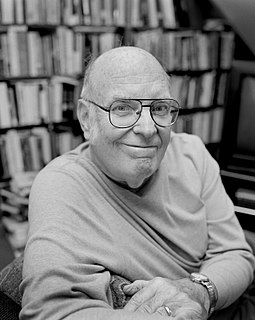A Quote by Edward Hirsch
There's been no poet, no great poet in the history of poetry who hasn't also been a great reader of poetry. This is sometimes distressing to my students when I tell them this.
Quote Topics
Related Quotes
Another trouble with poetry - and I'm gonna stop the list at two - is the presence of presumptuousness in poetry, the sense you get in a poem that the poet takes for granted an interest on the reader's part in the poet's autobiographical life, in the poet's memories, problems, difficulties and even minor perceptions.
A trouble with poetry is the presence of presumptuousness in poetry, the sense you get in a poem that the poet takes for granted an interest on the reader's part in the poet's autobiographical life, in the poet's memories, problems, difficulties and even minor perceptions. I try to presume that no one is interested in me. And I think experience bears that out. No one's interested in the experiences of a stranger - let's put it that way. And then you have difficulty combined with presumptuousness, which is the most dire trouble with poetry.
Poetry is probably the one field of writing in which it is a mistake to try to psych out editors. In fact, specific marketing advice can sometimes harm the novice poet by enticing him to pursue fashions. The poet's best hope is to sound like nobody else, The finest, most enduring poetry constructs a marketplace of its own.
Loneliness is necessary for pure poetry. When someone intrudes into the poet's life (and any sudden personal contact, whether in the bed or in the heart, is an intrusion) the poet loses his or her balance for a moment, slips into being what he or she is, uses his or her poetry as one would use money or sympathy. The person who writes the poetry emerges, tentatively, like a hermit crab from a conch shell. The poet, for that instant, ceases to be a dead person.


































